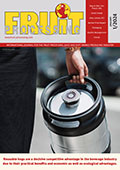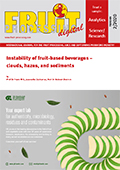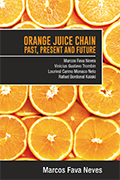Brazil: tahiti lime increases in the domestic market and quotes decrease
The supply of larger-sized tahiti lime increased in São Paulo State in November, due to rains. And as larger-sized fruits arrived at the market, the availability of small-sized tahiti lime decreased – until mid-November, the supply of small-sized fruits was high, since farmers were interested in trading them at high price levels.

The supply of larger-sized tahiti lime increased in São Paulo State in November, due to rains. And as larger-sized fruits arrived at the market, the availability of small-sized tahiti lime decreased – until mid-November, the supply of small-sized fruits was high, since farmers were interested in trading them at high price levels.
In that scenario, quotes were 47.7 % lower than in October, averaging 39.57 BRL per 27-kilo box, harvested, last month. As for liquidity, sales decreased in the Brazilian market too.
PERSPECTIVES – At processors, crushing is forecast to step up only in mid-January – prices have not been estimated yet. This year, the average tahiti lime quotes were higher than in 2017 most part of the year (except for March, July and August), pushed up by lower supply and firm demand, from both Brazilian processors and the international market.
ORANGE – Higher supply and weakened demand pressed down pear orange quotes by 7.9 % from October to November, to the average of 30.24 BRL per 40.8-kilo box, on tree, last month. In general, rains and the slight cold front during the month halted the citrus market. However, although demand decreased, the harvesting was limited by precipitation, constraining sharper price drops.
FIELD – The heavy rains from October and November in the main citrus producing regions from São Paulo State concerned Brazilian citrus growers regarding the quality of the mature oranges from the current season (2018/19). High moisture was leading the late fruits to grow up to large sizes before the ideal harvesting period (due to the higher water concentration), reducing acceptance in the in natura market.
This scenario may also reduce yield at processors. Still, farmers believe these fruits may be accepted for crushing, which may limit volume reductions, based on the smaller production in 2018/19.









